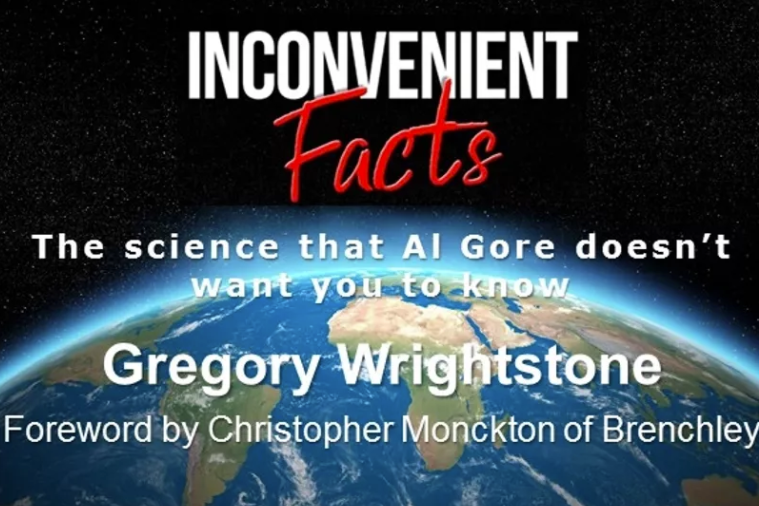Media

Inconvenient Facts: Debunking Climate Alarmists
Governments should focus on supporting economic prosperity to enable better adaption to climate changes instead of controlling carbon footprints. Consider the contrast in hurricane recoveries between Florida, where an electricity system strengthened by sound investments was quickly restored, and Puerto Rico, whose neglected equipment was practically wiped from the island.
A mountain of evidence for this view is contained in “Inconvenient Facts: The science that Al Gore doesn’t want you to know.” Written by Gregory Wrightstone of Pittsburgh, the book puts climate change into a geologic context of billions of years — a perspective derived from the author’s 35 years as a geologist.
Mr. Wrightstone’s approach contrasts sharply to the climate alarmist’s use of snapshots of time — whether a century or a decade or a single storm — to justify discarding economic systems and destroying people’s lives to reduce global temperatures by fractions of a degree.
“I know that the brief hundred or so years of recorded temperatures—and the even shorter time-frame since the first satellite was launched—is just a blink of a geologic eye,” says Mr. Wrightstone. “It is too brief a period to evaluate the data adequately.”
Backed by voluminous studies, “Inconvenient Facts” assures that modern warming is neither unusual nor catastrophic. Of the last 10,000 years since the last major ice age, 6,100 years were warmer than today. Humans have thrived in previous periods significantly warmer than our modern age, most recently in the 13th century when Vikings farmed Greenland and citrus grew in England.
Conversely, people have suffered during cold periods such as the Little Ice Age (1290-1850), which was marked by famine and disease.
While the Earth has experienced a steady decline in carbon dioxide levels for more than 500 million years, the book says, recent increases of the wrongly maligned gas is tied to a greening of 25-50 percent of the Earth — a positive, fertilizing effect of higher CO2 levels on plants.
One apocalyptic myth after another — from the purported threats of rising sea levels to vanishing polar bears — is destroyed by Mr. Wrightstone’s collection of research. Rather than a world lurching into a man-made climate hell from which there is no return, the Earth's ecosystems and humankind are thriving.
Written for the non-scientist, the book has more than 90 illustrations and 60 “inconvenient” facts rendered to a sentence or two. It effectively debunks proposals for economically destructive programs to control the uncontrollable — a perpetual cycle of glacial ice and “blessed warmth” driven by eternal terrestrial and solar forces.
“(T)he first and most important conclusion is that the correct policy to address the non-problem of man-made global warming is to have the courage to do nothing,” Mr. Wrightstone says.
Nothing, we would add, but to allow humankind the freedom to advance economically and technologically as it has done so wondrously since the onset of the Industrial Revolution.
Note: Gordon Tomb edited the writing of “Inconvenient Facts” on a voluntary basis.